
The prime minister of Denmark is the head of government in the Kingdom of Denmark comprising the three constituent countries: Denmark, Greenland and the Faroe Islands. Before the creation of the modern office, the kingdom did not initially have a head of government separate from its head of state, namely the monarch, in whom the executive authority was vested. The Constitution of 1849 established a constitutional monarchy by limiting the powers of the monarch and creating the office of premierminister. The inaugural holder of the office was Adam Wilhelm Moltke.

Venstre, full name Venstre, Danmarks Liberale Parti, is a conservative-liberal, agrarian political party in Denmark. Founded as part of a peasants' movement against the landed aristocracy, today it espouses an economically liberal, pro-free-market ideology.
The Conservative People's Party, also known as The Conservatives is a centre-right political party in Denmark. The party is a member of the International Democracy Union and the European People's Party.

The Folketing, also known as the Parliament of Denmark or the Danish Parliament in English, is the unicameral national legislature (parliament) of the Kingdom of Denmark—Denmark proper together with the Faroe Islands and Greenland. Established in 1849, until 1953 the Folketing was the lower house of a bicameral parliament, called the Rigsdag; the upper house was the Landsting. It meets in Christiansborg Palace, on the islet of Slotsholmen in central Copenhagen.

Jacob Brønnum Scavenius Estrup,, was a Danish politician, member of the Højre party. He was Interior Minister from 1865 to 1869 in the Cabinet of Frijs and Council President as well as Finance Minister from 1875 to 1894 as the leader of the Estrup Cabinet. At 19 years, he was the longest serving Danish prime minister.

General elections were held in Denmark on 8 February 2005. Prime Minister Anders Fogh Rasmussen's Venstre remained the largest party in the Folketing and his governing coalition with the Conservative People's Party remained intact, with the Danish People's Party providing the parliamentary support needed for the minority government. The Danish Social Liberal Party made the biggest gains of any party, although it remained outside the governing group of parties. The elections marked the second time in a row that the Social Democrats were not the largest party in parliament, a change from most of the 20th century. The Social Democrats lost five seats and leader Mogens Lykketoft resigned immediately after the elections. Voter turnout was 85% in Denmark proper, 73% in the Faroe Islands and 59% in Greenland.

The Constitutional Act of the Realm of Denmark, also known as the Constitutional Act of the Kingdom of Denmark, or simply the Constitution, is the constitution of the Kingdom of Denmark, applying equally in the Realm of Denmark: Denmark proper, Greenland and the Faroe Islands. The first democratic constitution was adopted in 1849, replacing the 1665 absolutist constitution. The current constitution is from 1953. The Constitutional Act has been changed a few times. The wording is general enough to still apply today.

Landstinget was the upper house of the Rigsdag, from 1849 until 1953, when the bicameral system was abolished in favour of unicameralism. Landstinget had powers equal to the Folketing, which made the two houses of parliament hard to distinguish.
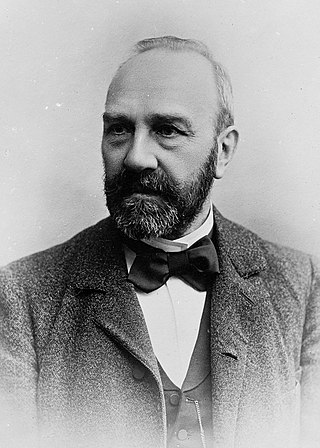
After the 1901 Danish Folketing election, the Council President Johan Henrik Deuntzer of the Venstre Reform Party became the leader of Denmark's first liberal government. The resulting cabinet, which replaced the Cabinet of Sehested consisting of members of the conservative party Højre, was formed on 24 July 1901 and was called the Cabinet of Deuntzer. The formation of the new cabinet is referred to in Danish as "systemskiftet", the shift of government.
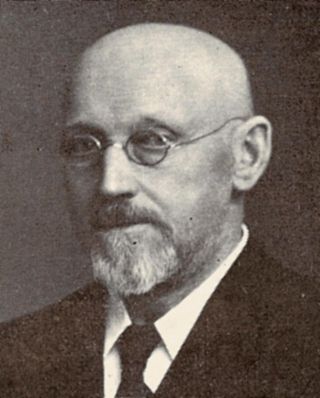
Ole Hansen (1855–1928) was a Danish politician, farmer and Minister for Agriculture in the Cabinet of Deuntzer and the Cabinet of J.C. Christensen I as a member of the Venstre Reform Party.

A referendum on the sale of the Danish West Indian Islands to the United States of America was held in Denmark on 14 December 1916. The non-binding referendum saw 283,670 vote in favor of the sale of the Danish West Indian Islands and 158,157 against. The residents of the islands were not allowed to vote on the matter, but in an unofficial vote on Saint Croix arranged by David Hamilton Jackson, 4,027 voted in favor of the sale and only seven voted against. As a result of the referendum the islands were formally relinquished to the United States by the Treaty of the Danish West Indies on 31 March 1917 as the United States Virgin Islands for a sum of US$25,000,000 in gold.
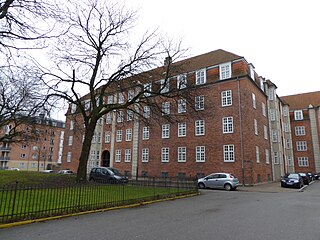
The Kanslergade Agreement was a 1933 political agreement in Denmark, which laid the foundation for the Danish welfare state. It was enacted by the government of prime minister Thorvald Stauning, with social minister K.K. Steincke being its chief architect. The Kanslergade Agreement was negotiated in Stauning's apartment on Kanslergade in Copenhagen, from which it takes its name.
The Society of the Friends of Peasants was a liberal Danish political society founded on 5 May 1846 by members of the provincial consultative assemblies Johan Christian Drewsen and Balthazar Christensen, with the intent to promote the liberation of the peasantry and equality among the different classes of society. Among its most politically influential members were Anton Frederik Tscherning, Jens Andersen Hansen and Carl Christian Alberti.
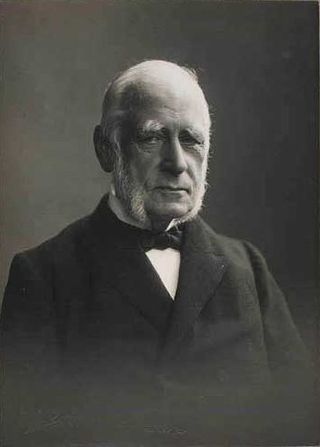
Hans Nicolai Hansen was a Danish politician, lawyer, and speaker of the Landsting, a chamber of the parliament.

Hans Christian Steffensen was a Danish politician, jurist and speaker of the Landsting, a chamber of the parliament.

The politics of Denmark take place within the framework of a parliamentary representative democracy, a constitutional monarchy and a decentralised unitary state in which the monarch of Denmark, King Frederik X, is the head of state. Denmark is a nation state. Danish politics and governance are characterized by a common striving for broad consensus on important issues, within both the political community and society as a whole.
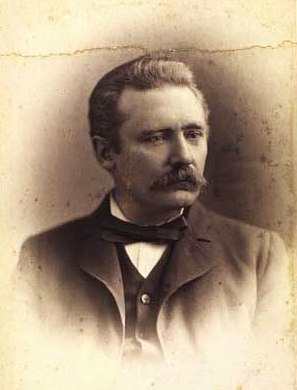
Niels Christian Frederiksen (Friderichsen) (23 March 1840 - 4 November 1905) was a Danish national economist, businessman and politician. He was a professor at the University of Copenhagen from 1867 and was a member of Folketinget from 1865. He emigrated to America after the collapse of his business conglomerate but returned to Denmark after a second bankruptcy. He was the brother of Erhard Frederiksen and Kirstine Frederiksen.
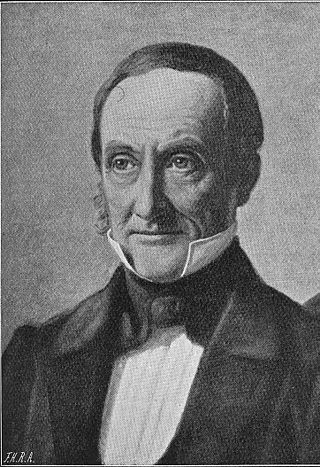
Balthazar Matthias Christensen was a Danish jurist and politician representing the Society of the Friends of Peasants.

Carl Parmo Ploug was a Danish poet, editor and politician.
The Denmark Democrats is a right-wing populist political party in Denmark. The party was founded in June 2022 by Inger Støjberg, and is officially titled Denmark Democrats – Inger Støjberg. The party is currently in opposition to the second Frederiksen government.


















